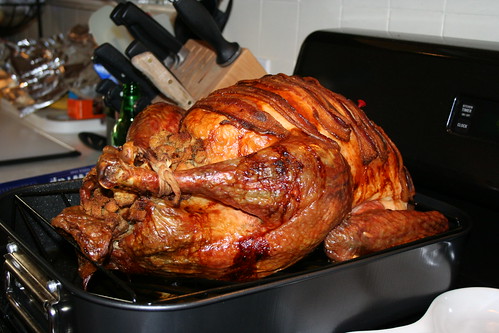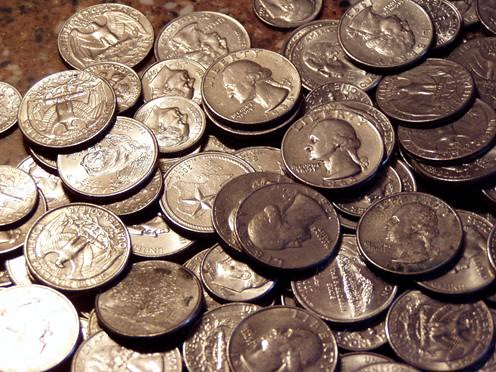 Let’s get down to some real “kitchen table economics” here: If you work for one of the financial/banking giants, it’s possible you might lose your job in the coming days or months. If you work for a company that borrows money to expand, operate or just plain keep going…it’s possible you might lose your job in the coming days or months. If you work for a governmental entity(state or municipal)…ditto. You get the idea.
Let’s get down to some real “kitchen table economics” here: If you work for one of the financial/banking giants, it’s possible you might lose your job in the coming days or months. If you work for a company that borrows money to expand, operate or just plain keep going…it’s possible you might lose your job in the coming days or months. If you work for a governmental entity(state or municipal)…ditto. You get the idea.
A lot of us are going to start feeling even more uncomfortable and insecure very soon, if we haven’t already done so. How to survive? For all the comparisons to The Great Depression, in my estimation, this is a whole new ballgame. Why? First and foremost: in 1929, people in the United States were not that far removed from subsistence living. Even people who lived in the largest urban areas still were doing many things for themselves, simply because the consumer economy behemoth did not exist the way it does today. The distance between farmers and other producers and consumers was not that far — consumers in New York City, for example, were buying their farm products from New Jersey and the counties in New York State within a couple of hours travel. No one was getting strawberries in January from California or Florida – that … did…not…exist. The whole economy of just going to a store and buying whatever you wanted/needed was much smaller than it is today; people many times had to make do, make over, or make their own.
My great aunties worked in the garment trade; one of them did put herself through secretarial school and graduated from the sewing machine to a typewriter at The American Tobacco Company. A real step up. Her sister sewed for a fancy ladies’ lingerie manufacturer her whole life. At home, they made their own clothing, were thrifty, and only indulged themselves on occasion. In the Depression, when their parents had to move out to Coney Island (because it was a lot cheaper than the Bronx), they all moved in together in a fifth floor walk up. They pulled together and reduced the entire family’s overhead. And they survived. The big book of the period was Five Acres and Independence (you can still get it from Amazon), aimed at people moving out of cities and surviving because they had a bit of land (actually, five acres is quite a chunk of property).
How are people going to survive the loss of major family income today — especially if they live someplace where either they don’t have a big yard or if they do, they might live where there are restrictive covenants (lawns of a certain size, planting of xx plants, no vegetable gardens where they can be seen, no hanging clothes on a clothesline outside and so on)? In a society where much of people’s image of themselves and their families revolves around financial resources rather than actual “do it for ourselves, thrift, etc.” skills, what are the possible outcomes for families who lose a big chunk of their income?
(originally published at Oxdown Gazette)

 Recently, Aunt Toby became aware of a movement that seems to be sweeping over the world of Blogistan and that is this business of people’s coming up with huge lists of things that they say they want to do, accomplish, take care of , etc. etc. within a certain period of time.
Recently, Aunt Toby became aware of a movement that seems to be sweeping over the world of Blogistan and that is this business of people’s coming up with huge lists of things that they say they want to do, accomplish, take care of , etc. etc. within a certain period of time.  (Caution: Image Heavy) We all know what’s happened to the stock market over the past year. No news there. A whole lot of people lost a whole lot of their retirement and goodness knows what else over the past year. A whole lot of people are going to have to work long past their ‘sell by’ dates just to get through.
(Caution: Image Heavy) We all know what’s happened to the stock market over the past year. No news there. A whole lot of people lost a whole lot of their retirement and goodness knows what else over the past year. A whole lot of people are going to have to work long past their ‘sell by’ dates just to get through.  One of the reasons that I started this blog is that last year, I started to see that the economy was going into the tank and was very concerned that for a lot of people, certain basic ‘activities of living’ were going to become harder and harder to accomplish.
One of the reasons that I started this blog is that last year, I started to see that the economy was going into the tank and was very concerned that for a lot of people, certain basic ‘activities of living’ were going to become harder and harder to accomplish.  Well, I certainly opened up the floodgates for folks with the ‘my grandmother told me about the time she just left the kitchen ‘for a moment’ and her pressure canner exploded and cousin CindyLou got burned and the windows blew out and she never used a pressure canner ever again’ stories.
Well, I certainly opened up the floodgates for folks with the ‘my grandmother told me about the time she just left the kitchen ‘for a moment’ and her pressure canner exploded and cousin CindyLou got burned and the windows blew out and she never used a pressure canner ever again’ stories.  Aunt Toby has, I suspect, a rather unique philosophy on sewing clothing for family members in terms of ‘making it pay’, which is this:
Aunt Toby has, I suspect, a rather unique philosophy on sewing clothing for family members in terms of ‘making it pay’, which is this: OK – everyone comfy? Want more coffee?
OK – everyone comfy? Want more coffee?